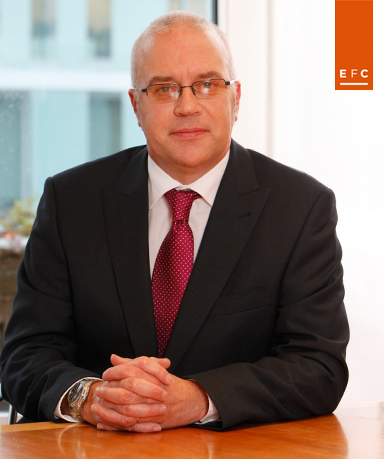Donal Dunne: When are witness statements no longer privileged?

Donal Dunne
Donal Dunne, associate in the dispute resolution team at Eugene F. Collins, writes on a recent High Court decision clarifying Irish law on litigation privilege over witness statements.
The High Court has clarified the extent to which litigation privilege exists over witness statements in Irish law in a recent ex tempore judgment (i.e. a judgment which is handed down immediately after an application or hearing of a case without prior preparation) on 15 October 2018 of Mr Justice Twomey in the Madoff fraud related Commercial Court case of Defender Limited v HSBC Institutional Trust Services (Ireland) DAC.
Litigation privilege is a category of legal professional privilege which provides confidentiality over communications between a lawyer and client or between both of them and a third party as long as the dominant purpose of such correspondence or documentation is for use in actual or contemplated litigation.
The Defender case is one of several cases where investors who suffered significant losses arising from the Ponzi scheme which was operated by Bernard L Madoff (being the largest financial fraud in history) have instituted proceedings against HSBC’s Irish custodial services company.
The decision of Mr Justice Twomey arose from an application by Defender for discovery of witness statements and expert reports - firstly those prepared by the HSBC defendant company in separate proceedings instituted by Thema International Fund which had previously been heard by the Irish High Court, and secondly those prepared by another HSBC entity in proceedings instituted in the Cayman Islands by the Primeo Fund. Both cases arose from the Madoff fraud.
Irish v English position
The position in relation to litigation privilege in Irish and English law is somewhat different. Under English law, documents which are imbued with litigation privilege remain privileged forever. In Irish law, litigation privilege extends only until the end of the particular litigation unless it may be invoked in a closely related case.
In Commercial Court proceedings in Ireland under Order 63, Rule 22(1) of the Rules of the Superior Court, a party who intends to give oral evidence as a witness of fact or as an expert, must deliver a written statement outlining the essentials of that proposed evidence. Witness statements are exchanged prior to the hearing of proceedings. The issue that the Court had to determine in Defender’s application was whether litigation privilege extended to witness statements which had been served but which were not opened to the Court or relied on by one or other party during the hearing of an action.
The Rules of the Superior Courts in Ireland are silent as to the status of a witness statement once served. Under the English Civil Procedure Rules for litigation, it is clear that a witness statement may only be used for the purpose of the proceedings in which it has been served and is privileged until such time as it has been put into evidence at a public hearing.
Defender’s application for discovery of witness statements and expert reports included both witness statements and experts’ reports which had been opened to the Court in the Thema and Primeo cases and also witness statements and experts’ reports which had not been opened to the Court in these cases.
When is privilege lost?
Mr Justice Twomey considered issues of necessity and relevance, delay and privilege and concluded that in accordance with the decisions of Mr Justice Hogan in Kelly v Byrne and AIB v Tracey, the use of verbatim extracts and summaries of parts of the witness statement without restriction in cross examination was an effective opening of the witness statement to the Court, even where that witness statement was not subsequently adopted by that witness in evidence. Mr Justice Twomey was satisfied that where a witness statement was effectively put into the public arena, this would lead to a loss of privilege.
He concluded that the witness statements in the Primeo case, which had been opened to the Cayman Islands Court, had lost privilege in that trial and should be made available on discovery by Defender to HSBC.
However, the statements in the Thema case did not lose privilege when they were served by HSBC on the opposing side in that litigation. Further, privilege was not lost on the completion of the Thema proceedings (which settled) where those witness statements had not been opened during the course of the proceedings. Mr Justice Twomey found that as the Thema case is closely connected to the Defender case those witness statements still remained privileged.
The High Court has now clarified the position in relation to the status of witness statements which remain privileged until such time as they are opened in evidence or relied on by a party at the hearing of an action.

- Donal Dunne is an associate in dispute resolution at Eugene F. Collins. View his profile here.









